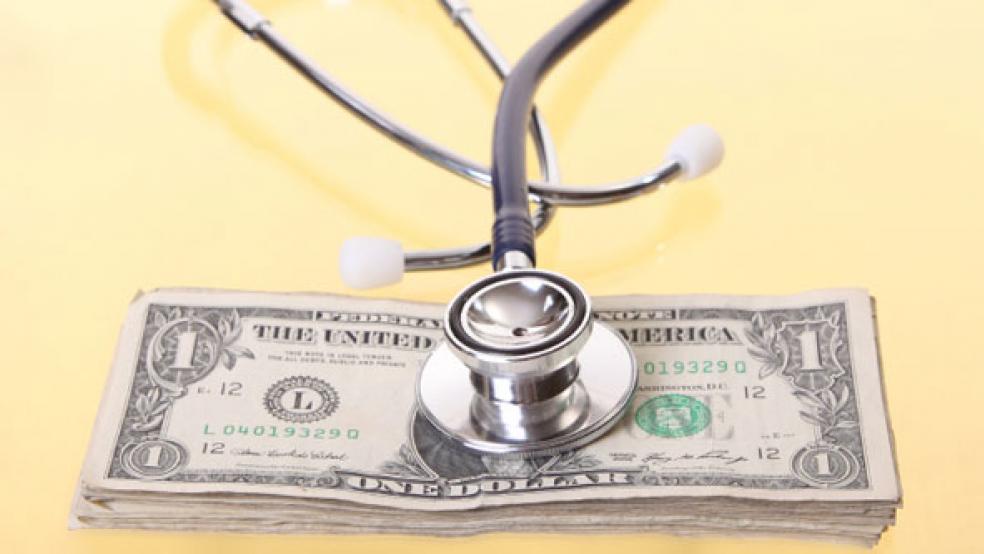Republicans filed out of a closed-door strategy session today without a final decision on how to approach the coming debate over raising the debt ceiling, according to The Washington Post. But a report issued by the Congressional Budget Office Tuesday morning may help make the decision for them.
Many congressional Republicans believe that they should not raise the nation’s borrowing limit unless President Obama agrees to give them something in return. Approval of the Keystone XL pipeline or a repeal of the so-called risk corridors in the Affordable Care Act are the two items topping their potential wish list. The CBO report might shift the balance between those options because it projects that the risk corridor program, which Republicans have insistently characterized as a bailout of the insurance industry, will probably generate a net profit for the federal government.
Related: Grim Deficit Outlook in New CBO Report
The risk corridors are a temporary measure to protect insurers from unexpectedly large losses in the first few years of the health care law’s implementation. Companies that incur costs from medical claims that are significantly higher than expected would be compensated by the government, and those with costs that are significantly below expectations would have to pay back part of that windfall, also to the government.
A joint analysis by the CBO and Congress’s Joint Committee on Taxation found that in the coming years, the government will pay out an estimated $8 billion to insurers as part of the risk corridor program. That will be offset, however, by an estimated $16 billion paid back to the government by health insurers. The CBO had previously projected that the risk corridors would have no net impact on the budget.
CBO Director Doug Elmendorf said that the new estimates don’t necessarily mean that repealing the risk corridors would cost the government $8 billion, according to The Hill. Even so, the new numbers make it harder for Republicans, who have long decried Obamacare as an economic disaster, to target an element of the bill that’s now projected to generate a positive return for the government. That leaves Keystone XL as the only thing on the table when the GOP makes its debt ceiling demand.
Top Reads from The Fiscal Times:





